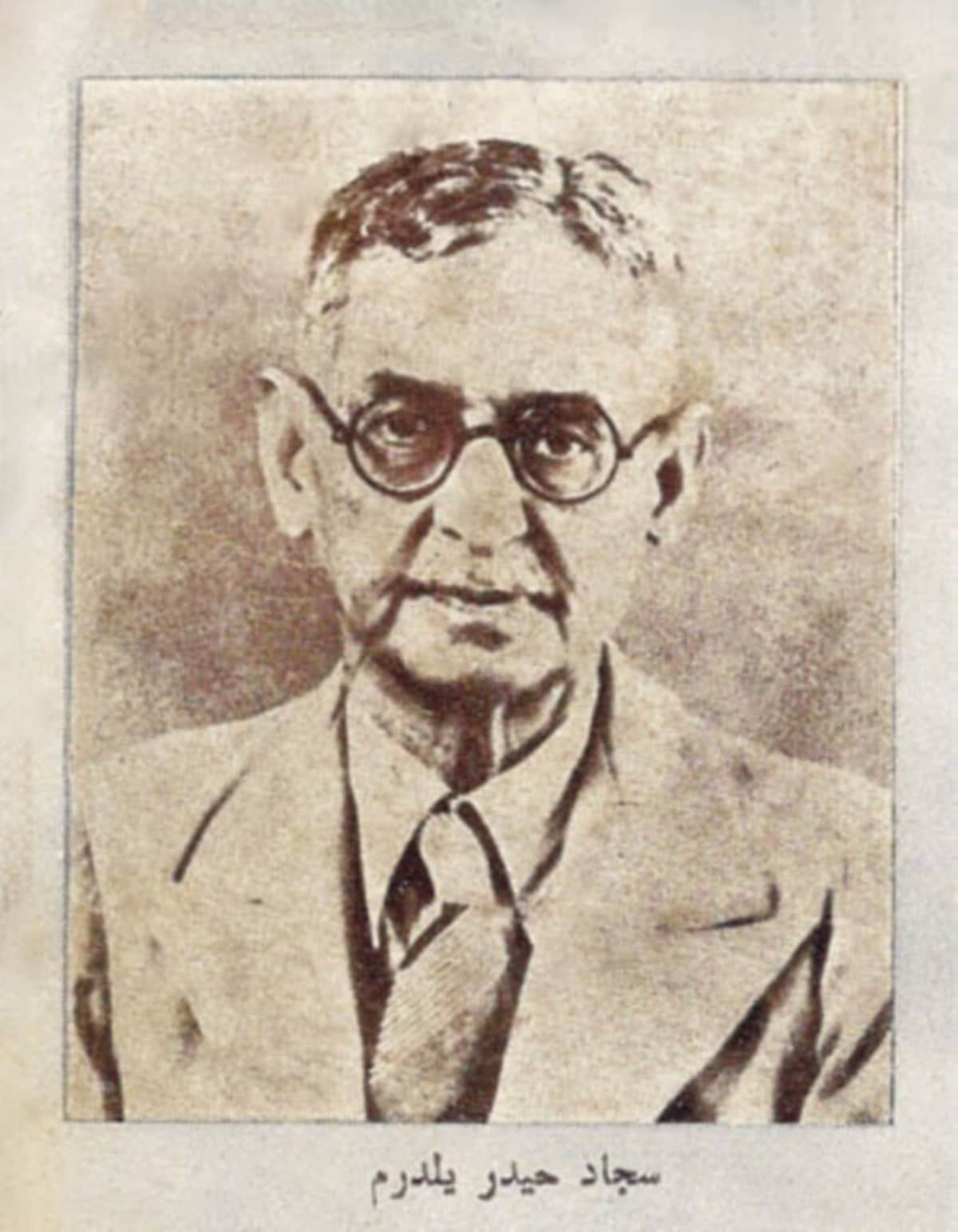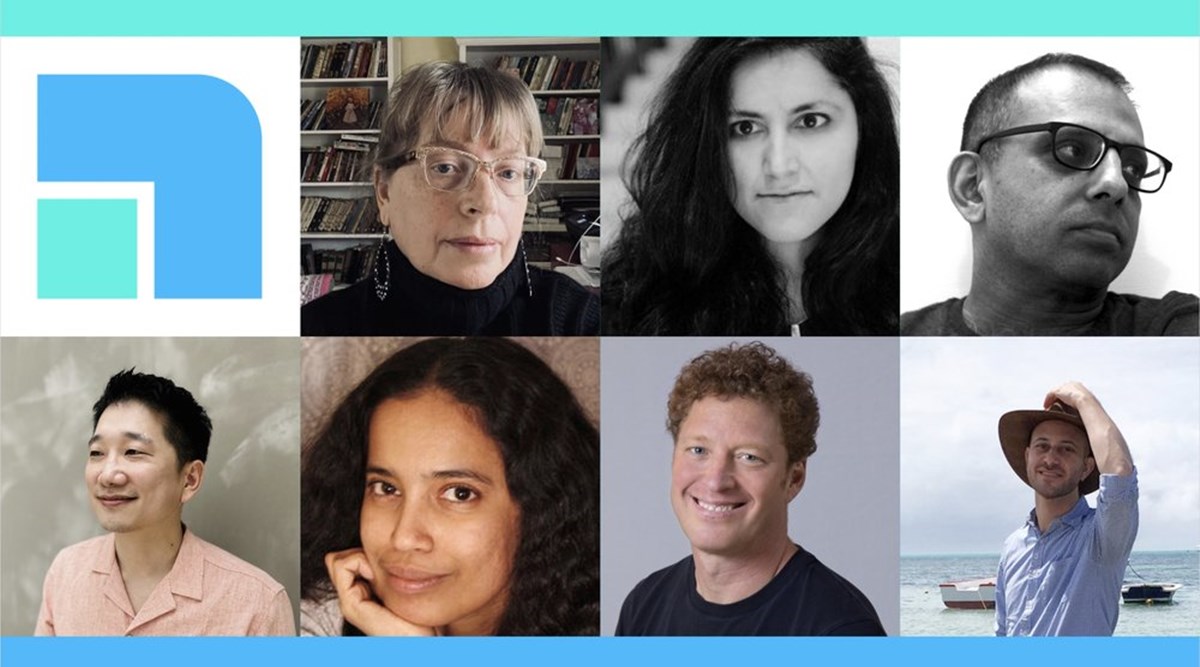After a year of Indian literature in translation dominating international headlines, literature festivals, book party gossip, and social media feeds of the literarily inclined, there is another reason to celebrate: The Armory Square Prize for South Asian Literature in Translation, a new annual award instituted by the American venture capitalist firm Armory Square, has released its shortlist of seven books translated from five South Asian languages including Urdu, Assamese, Tamil, Hindi, and Sri Lankan Tamil.
The award has been instituted to recognise literature from underrepresented traditions and correct a disparity in the publishing world — as per the prize’s announcement, “Of the nearly 7,600 books published in translation in the United States over the past decade, only 64, or fewer than one percent, originated from a South Asian language, even though these languages are spoken by a full one-fifth of the world’s population.”

 Syed Sajjad Haider. (Source: Wikimedia Commons)Also Read | Shobhaa De: ‘I’d like to do an extremely provocative and wicked book’
Syed Sajjad Haider. (Source: Wikimedia Commons)Also Read | Shobhaa De: ‘I’d like to do an extremely provocative and wicked book’
The jury includes Daisy Rockwell, translator of Geetanjali Shree’s International Booker Prize-winning Tomb of Sand; Jason Grunebaum, chair and recipient of the PEN/Heim Translation Grant; Shahnaz Habib, translator of Benyamin’s JCB Prize-winning Jasmine Days; Anton Hur, double-longlisted and shortlisted for the International Booker Prize 2022; Arunava Sinha, creative writing professor at Ashoka University; Jeffrey Zuckerman, recipient of the PEN/Heim Translation grant; and Pia Sawhney, partner at Armory Square Ventures.
 The winner of the 2022 International Booker Prize is ‘Tomb of Sand’ by Geetanjali Shree, translated from Hindi to English by Daisy Rockwell. (Twitter/@TheBookerPrizes)
The winner of the 2022 International Booker Prize is ‘Tomb of Sand’ by Geetanjali Shree, translated from Hindi to English by Daisy Rockwell. (Twitter/@TheBookerPrizes)
Until the winner is announced next week, here’s a look at the writers, translators and their shortlisted works:
1. The Kettle-Drum and Other Stories (2016) by Siddique Alam, translated from Urdu by Musharraf Ali Farooqi
“Then she remembered that spirits did not have feet… well, they did, but they did not need to put them on the ground.”
The titular story of this collection is about an Adivasi woman living with the ghost of her dead husband, simultaneously exploring tribal traditions, community legends and their place in the modern world. Alam is a stalwart of contemporary Urdu literature and hails from West Bengal, having written plays and published five short story collections, four novels and a poetry collection since the start of his fiction career in 1972.
On Farooqi’s translation, jurist Sinha said, “[This limpid and elegant translation] infuses the intersectional world of primal practices and contemporary conflicts in Siddique Alam’s stories with the controlled grace of the original Urdu as well as the author’s spartan clarity. Alam tells authentic stories that are both grounded and soaring, and Farooqi follows his text without missing a beat.”
2. This Village Doesn’t Exist (2016) by Amit Dutta, translated from Hindi by Vaibhav Sharma
“The art of turning teardrops into pearls was something I had learnt.”
Authored by Amit Dutta, one of India’s most popular experimental filmmakers, this is a fantastical debut — Kaljayi Kambakht (This Village Doesn’t Exist) — in which animals and humans coexist alternatively in harmony, in violence, and in full coherence of each other’s languages and cultures.
Also Read | Damyanti Biswas comes out with second crime novel
On Sharma’s translation, jurist Zuckerman said, “[This vivid translation…] forges the auteur’s magic and madness anew in English, gifting a new cadre of readers a surreal fever dream so fierce that waking seems impossible.”
3. Somewhere It’s Three O’Clock Right Now (2019) by Appadurai Muttulingam, translated from Sri Lankan Tamil by Thila Varghese
“I told the officer that I was going to Brazil to join the crew onboard a ship, exactly as the agent had coached me.”
Containing stories as tonally far-flung as Kashmiri fighters living in Peshawar and elderly immigrants fondly remembering their old messenger doves, this collection by Appadurai Muttulingam builds upon the author’s diasporic life between Sri Lanka, his birthplace and Canada, where he now lives.
On Varghese’s translation, jurist Grunebaum said, “[Muttulingam] gives an urgent and nuanced voice to those in the margins of Sri Lanka’s civil war in the titular story. Her captivating translation from Sri Lankan Tamil brings to a new readership this international tale of humanism and survival.”
4. Raasa Leela (2006) by Charu Nivedita, translated from Tamil by Nandini Krishnan
“It did occur to him that a rather more expedient — and glamorous — course to becoming a writer would be evolving into a thief himself than observing them as a prison clerk. But he lacked the courage that vocation required.”
Another work in the shortlist that features characters from indigenous and marginalised communities is Charu Nivedita’s Raasa Leela with a protagonist from a Dalit/Adivasi background. Nivedita is a prominent Tamil writer in the postmodern tradition and penned this work with inspiration from his own upbringing as the son of Adivasi migrants.
On Krishnan’s translation, jurist Sawhney said, “Endearing and irreverent, [this translation] eludes easy definition. Nivedita’s frustrated narrator is vital and distinctly witty as a small-town bureaucrat at the Department of Prisons. Glowing, lucid new writing.”
5. Alpha-Beta-Gamma (2022) by Nasera Sharma, translated from Hindi by Akshaj Awasthi
“The expression on his face was not that of triumph, but rather of a heavy regret. Just like that soft-hearted soldier who, after claiming victory, was left shaken by the countless corpses blanketing the ground.”
Set in the COVID-19 lockdown with its lens turned to an oft-forgotten resident of urban India — the street dog — this novel by Nasera Sharma explores a first-person canine narrative that observes the mass exodus of migrant labourers, suffers starvation after the shutdown of hotels, restaurants, and offices, and must navigate a lonely city with all its human residents indoors.
On Awasthi’s translation, jurist Hur said, “[This work] traverses many borders, from the divide between animals and humans to interrogating the false narrative of the Hindi/Urdu divide. Awasthi’s translation expertly navigates these breakthroughs in their own feat of literary border-crossing.”
6. The Smell of Bamboo Blossoms (2005) by Yeshe Dorje Thongchi, translated from Assamese by Aruni Kashyap
“He plucked a seed and smelled it. It smelled exactly like raw bamboo, no different. Inside the thick green skin of the seed, there was something that looked like wheat grain.”
The stories of this collection are set among Adivasi populations of Northeast India, penned in Assamese. The author, Yeshe Dorje Thongchi, is from Arunachal Pradesh and often uses his fiction to engage with the relationship between Assam and Arunachal Pradesh, as well as the history of the North-East Frontier Agency (NEFA)
On Kashyap’s translation, jurist Habib said, “[This translation] lives up to the complex linguistic and cultural hybridities of Thongchi’s storytelling… He belongs to the Sherdukpen tribe of Arunachal Pradesh. His stories document the encounter between Arunachal’s tribal communities and modernity, in a voice that is both profound and playful.”
7. Save Me From My Friends (1928) by Sajjad Haider Yaldram, translated from Urdu by Nandini Krishnan and Jaweeda Habeeb
Most Read 1Govinda started ‘rona-dhona’ about Salman Khan, Shah Rukh Khan, ‘ab ghar pe baitha hua hai’: Pahlaj Nihalani on torrid relationship with actor 2Asian Games 2023 Live Updates, Day 11: Satwik-Chirag in action, Lovlina Borgohain in action soon in final; archery gold for Jyothi-Ojas 3Show Rs 50,000-crore investment or apologise to Punjabis: Sukhbir Badal 4Jawan box office collection day 26: Shah Rukh Khan’s blockbuster refuses to slow down, nears Rs 1100 crore worldwide gross 5Here’s state-wise list of fake universities
“You may hate me for this, but I cannot hold myself back from saying that not one soul has been able to prove to me that having an army of friends has any positive effect on one’s life.”
Yaldram is the oldest name in this shortlist, born in 1880 in Nahtwar district, Bijnor, writing alongside Premchand, going on to study Turkish literature, work in Iraq’s Turkish embassy and settle in Lucknow as Registrar of Aligarh Muslim University. He drew from the Romantic and Russian Realist movement and was also known for his literary criticism.
Also Read‘Masculinity is like water, seeps in easily’: Kannada writer Vivek ShanbagFrom Amitav Ghosh to Perumal Murugan: 15 best books on IndiaAnother win for Indian literature in translation: three writers make it t…French writer Annie Ernaux awarded Nobel Prize in literature
On Krishnan and Habeeb’s translation of this short story collection, jurist Rockwell said, “Yaldram was one of the first short story writers in Urdu. This collection… brings his wit to life in an energetic and fresh translation.”



